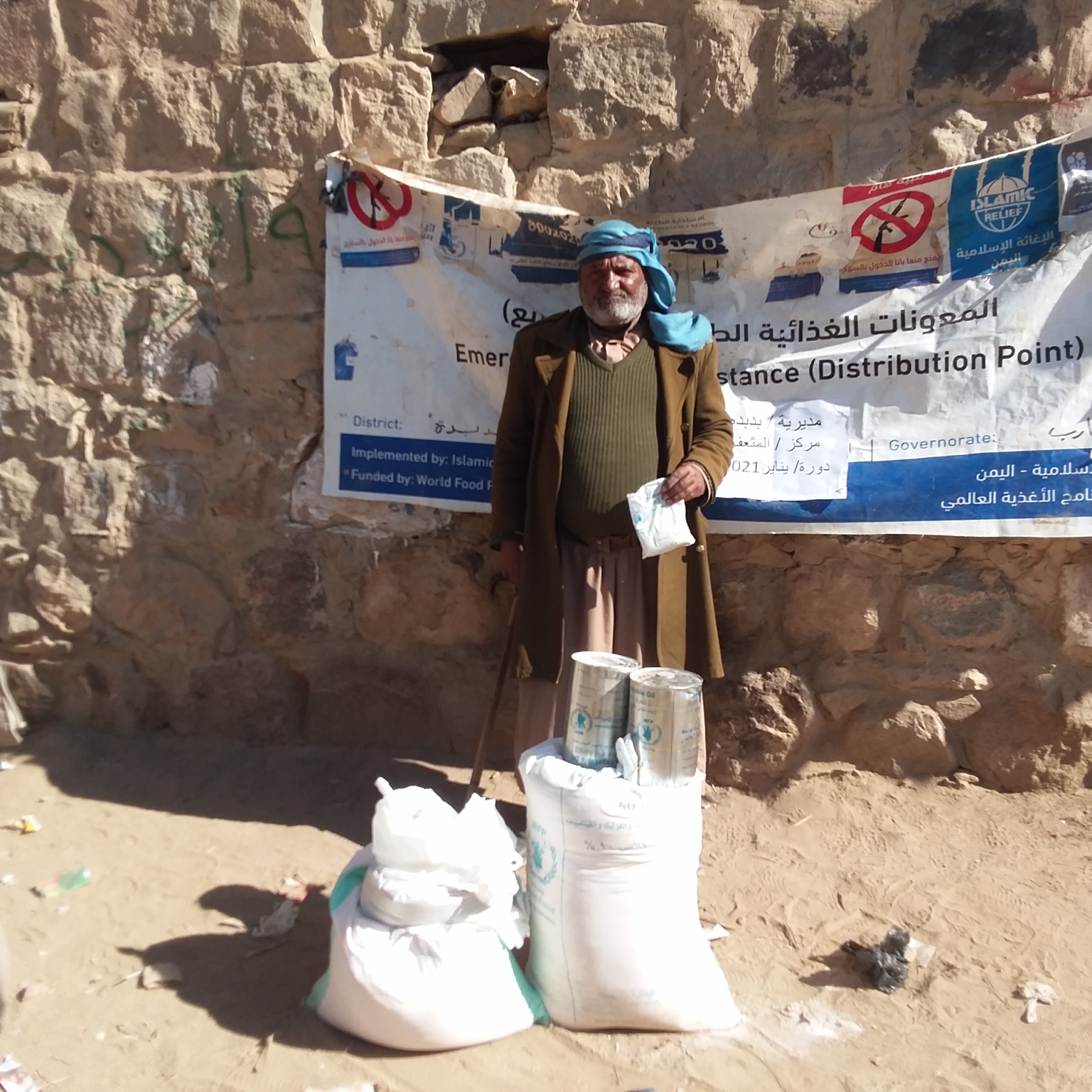In Yemen, 80% of families do not know where their next meal is coming from. The collapsed currency has pushed the price even of bread beyond the reach of many families, and Yemen is again teetering on the brink of famine. Islamic Relief works with vulnerable communities in Yemen, and our food programmes serve huge numbers of people.
1 in every 4 families have lost their livelihoods, while half have seen their incomes drop by over 50% and are struggling to buy even the basics needed to survive.
When families are forced to flee their homes in an emergency, we make sure they have the food support they so desperately need. As one of the UN World Food Programme’s (WFP) biggest partners, we distribute food vouchers and food packages, which contain essential staples such as rice, flour and oil that are a lifeline for families in crisis.
Ali’s story
“We have been really struggling, particularly with a lack of food. Our children are at risk of malnutrition. We’re in this position because we simply have no income. We depend solely on the support of charitable organisations in order to feed our families,” says 65-year-old Ali from Maghreb, who is one of millions of Yemenis facing dire living conditions since the war broke out in 2015.
“Food prices have skyrocketed, making life even tougher. We have been facing great difficulty in accessing food, water and healthcare. Transport is very expensive and we are forced to wait at home for help. We have no money, and this is affecting us all. People are living in very difficult circumstances.”
Ali works as a deputy head teacher in the village school, but the ongoing conflict has meant teachers now work on a voluntary basis, leaving him with no income with which to support his family of 12.
“The devastating, ongoing conflict has meant that the education system has completely broken down, teachers have not been paid for almost 5 years. We were living well before this war broke out, but as you can see, our conditions have significantly worsened.”
Islamic Relief has been working with the WFP in Yemen to provide struggling families such as Ali’s with essential food supplies.
“Every 2 months, the organisation provides us with a food basket including flour, cooking oil, beans, sugar, rice and salt,” he says.
A lifeline for Abdulhakeem
“Before the war broke out, my life was easy and getting a job was simple. Now, life has become very difficult, and finding a job is an impossible task,” says 62-year-old Abdulhakeem from Al-Shimayatain, Taiz, who is unable to find work to support his large family.
“We were forced to sell our car which used to be our main source of income, as well as gold, land and everything we had in order to save our children’s lives. Then I started to borrow from others, and became heavily in debt.
“My wife and I saw extremely difficult days, to the point that many times we would have nothing in the kitchen to feed our children… we were plunged into a devastating hunger.
“We couldn’t cope when food prices began skyrocketing because we had nothing in our hands. Living without enough food made me very tired. On top of that, we often had to bring water with jerry cans on donkeys from very far away, exhausting me even further.
“The ongoing war has completely ravaged my health. I have suffered with abdominal disease, high blood pressure and diabetes due to severe continuous anxiety about how I will feed my family,” says Abdulhakeem.
Then, Abdulhakeem began receiving support from Islamic Relief’s emergency food assistance programme in Taiz, which provides monthly food packages to 1,150 vulnerable families in the area. It was a lifeline for his family, as well as for many others.
“Islamic Relief have put happiness on our faces, and renewed our hope. While other organisations gave up on us, they never have”, he says. Abdulhakeem is one of over 6 million people in Yemen who has received food aid from Islamic Relief.





